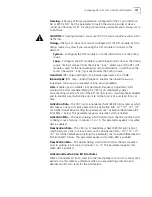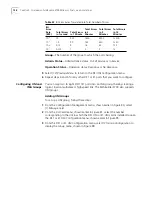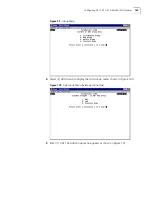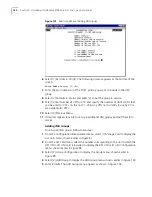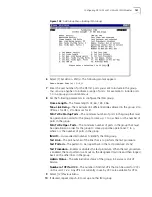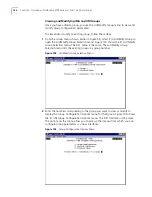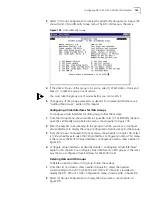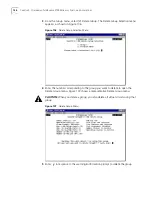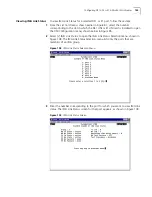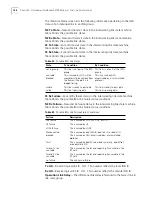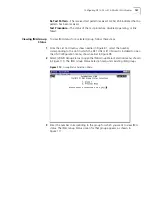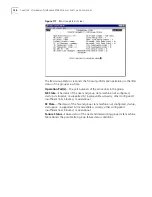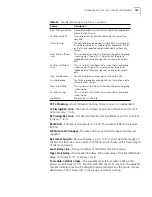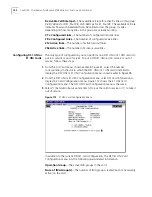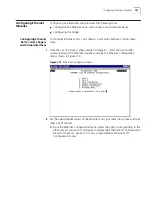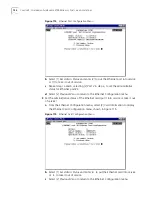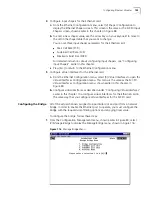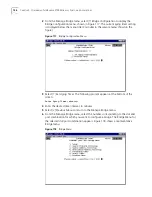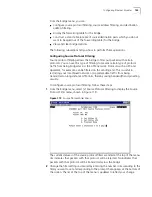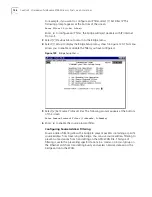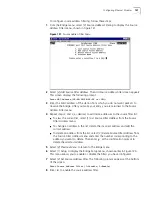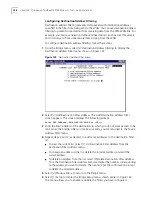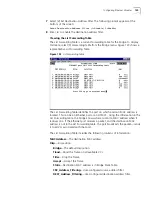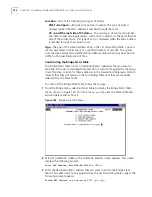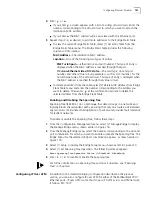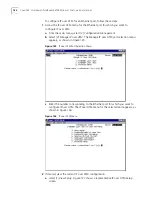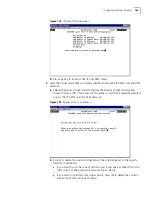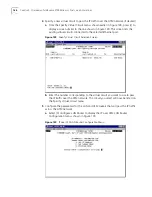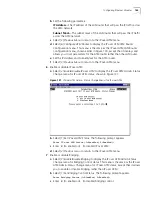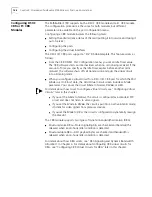
Configuring Ethernet Modules
151
Configuring Ethernet
Modules
Configuring an Ethernet module involves the following tasks:
n
Configuring the Ethernet ports, card, shapers, and virtual interfaces
n
Configuring the bridge
Configuring Ethernet
Ports, Cards, Shapers
and Virtual Interfaces
To configure Ethernet ports, card, shapers, and virtual interfaces, follow these
steps:
1
From the List Card menu, shown earlier in Figure 81, select the slot number
corresponding to the Ethernet module to display the Ethernet Configuration
menu, shown in Figure 113.
Figure 113
Ethernet Configuration Menu
2
Set the administrative status of the Ethernet ports (put them into service and take
them out of service).
a
From the Ethernet Configuration menu, select the option corresponding to the
Ethernet port you want to configure to display the Ethernet Port Configuration
menu for that port. Figure 114 shows a representative Ethernet Port
Configuration menu.
Summary of Contents for 3C63400-3AC-C - PathBuilder S700 Switch
Page 14: ...xiv CHAPTER SUPPLEMENTARY REGULATORY INFORMATION ...
Page 18: ...4 ABOUT THIS GUIDE ...
Page 28: ...14 CHAPTER 1 SYSTEM DESCRIPTION ...
Page 88: ...74 CHAPTER 3 GETTING STARTED ...
Page 260: ...246 CHAPTER 6 PATHBUILDER S700 DIAGNOSTICS AND PERFORMANCE MONITORING ...
Page 270: ...256 INDEX ...

